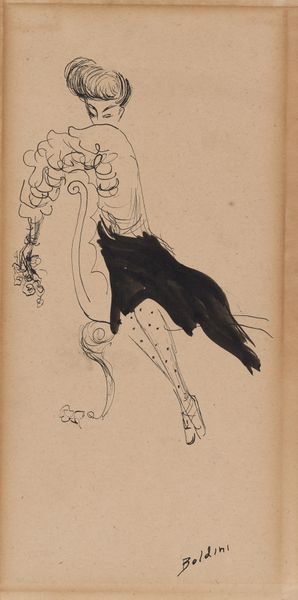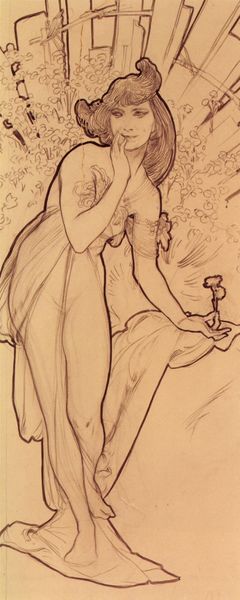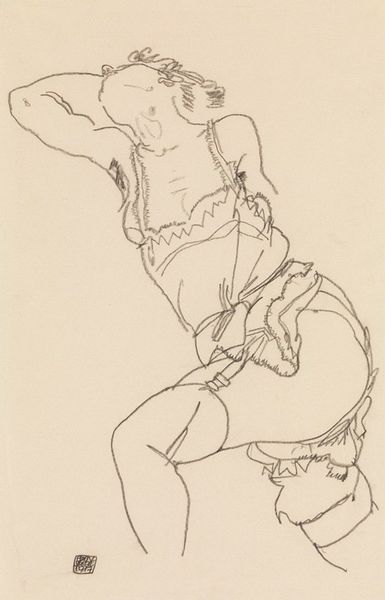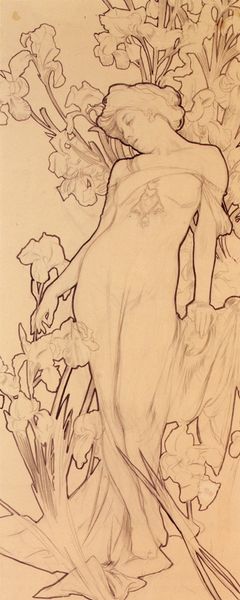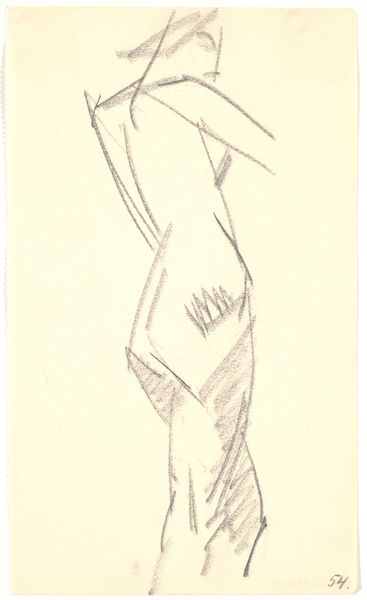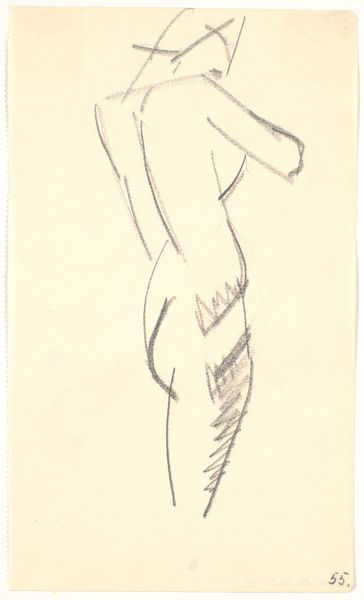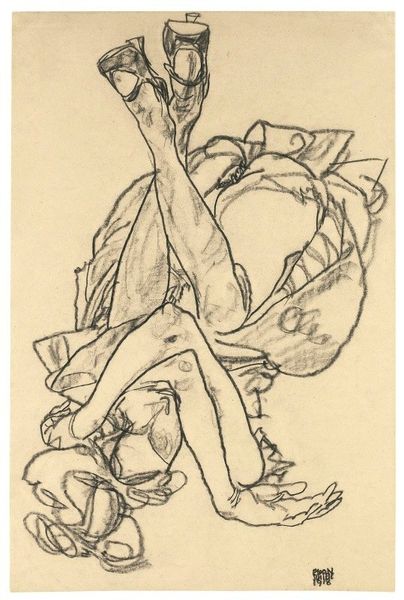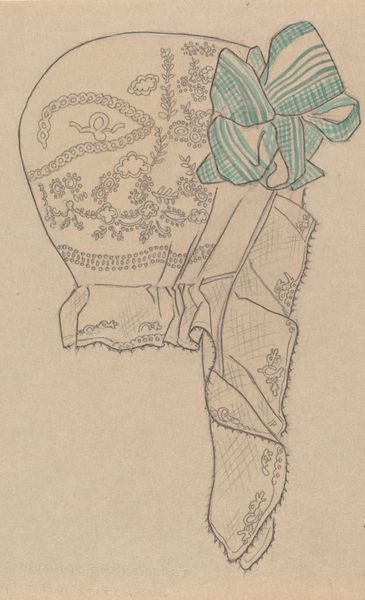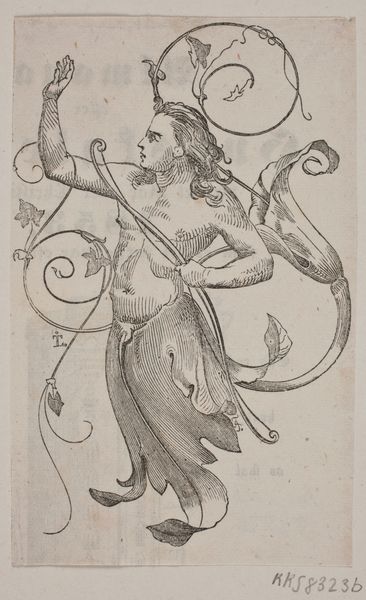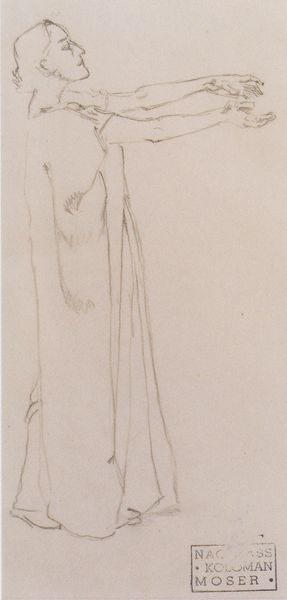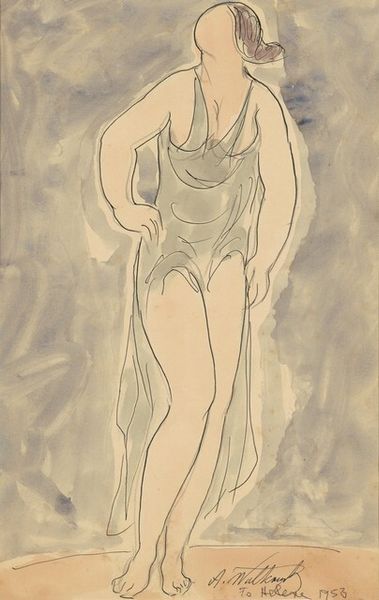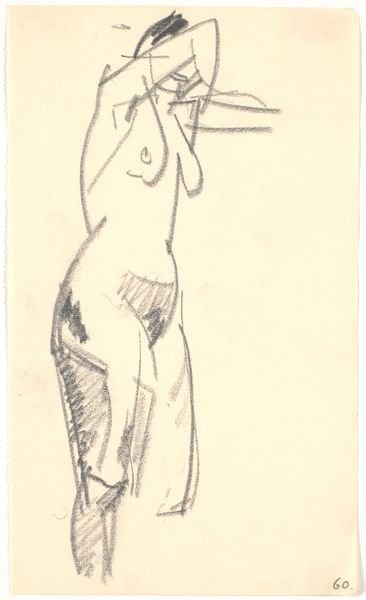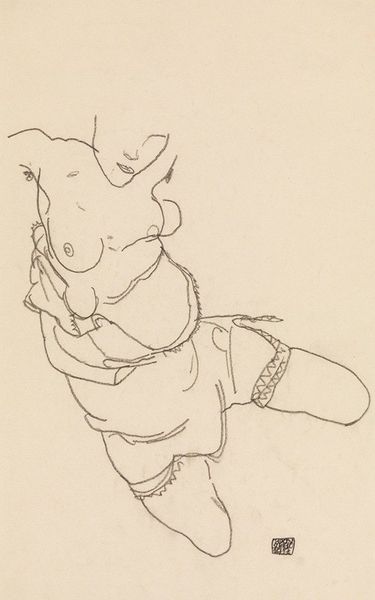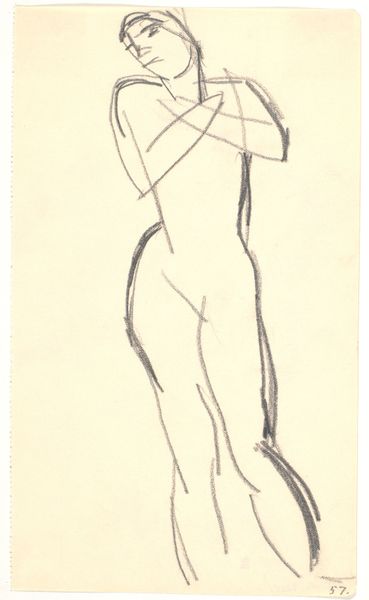
drawing, ink
#
portrait
#
drawing
#
art-nouveau
#
figuration
#
ink
#
line
#
symbolism
#
decorative-art
Dimensions: 40 x 33 cm
Copyright: Public domain
Editor: This is "Wreath Bearer," a design for the Viennese Secession building's facade by Koloman Moser, made around 1897. It's an ink drawing of a figure, and what strikes me is how much it looks like an advertisement. What's your take on this, particularly regarding its context? Curator: I think your observation is spot on! It’s crucial to consider that this wasn’t simply a drawing, but a design *intended* for architectural reproduction. It brings up questions of artistic labour, specifically Moser’s. Was it considered "high art" at the time, or a commercial sketch? The planned repetition and mass consumption as decorative facade elements are vital aspects to consider. How does that inform your understanding of its purpose? Editor: Well, knowing that it was meant to be repeated changes things. It seems like it blurs the line between fine art and functional design. It feels almost…proto-industrial. Curator: Precisely. The Secession movement challenged these very divisions. Materials were just one step in the total work of art or gesamtkunstwerk as Wagner called it, dissolving conventional artistic hierarchies. Consider the labour involved, too. From Moser’s design to the execution on a building, many hands would have replicated his image, which would itself have become part of the architectural production and consumed via visual culture. It brings materiality right into focus. What kind of audience was going to "consume" it visually everyday, and how did this change their lives in material ways? Editor: I hadn't really considered all of those levels of labour and materiality. Thinking about it this way, it becomes less about just the image and more about this whole network of production and consumption. Curator: Exactly. And those economic and material relationships really shaped the cultural impact of the work, right? It’s about thinking beyond the surface. Editor: Definitely gives me a lot to think about regarding how we define and value "art." Curator: Indeed, and that constant questioning keeps it alive, I feel.
Comments
No comments
Be the first to comment and join the conversation on the ultimate creative platform.
